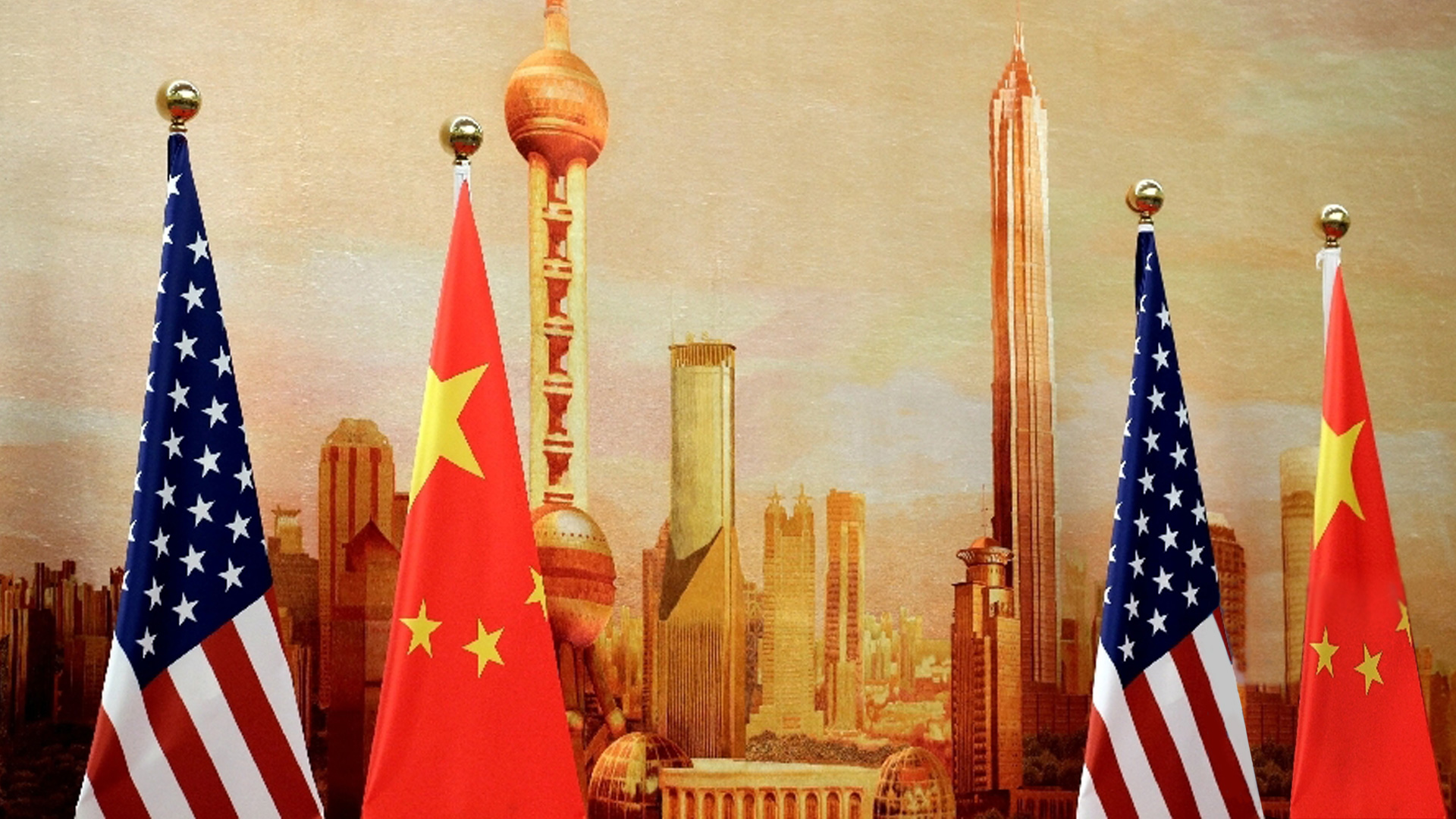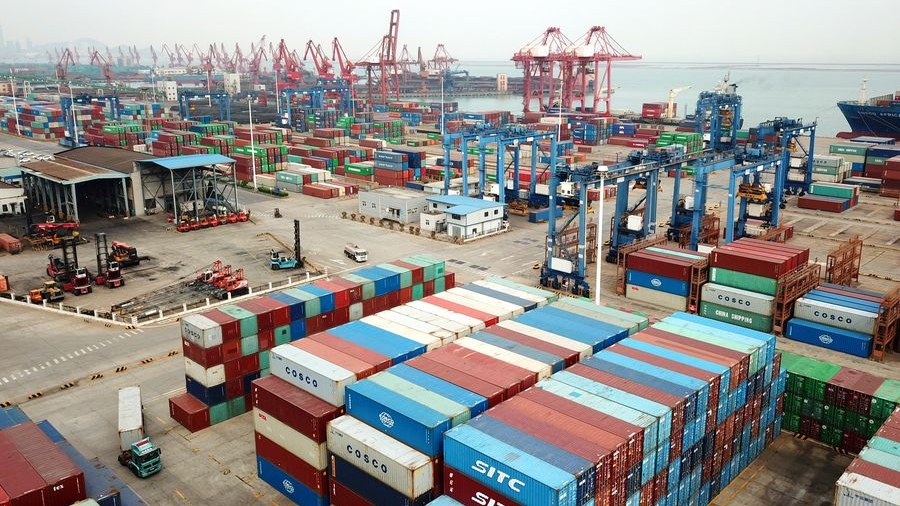
Editor's Note: Ken Moak taught economic theory, public policy and globalization at the university level for 33 years. He co-authored the book "China's Economic Rise and Its Global Impact" in 2015. The article reflects the author's opinions and not necessarily the views of CGTN.
With Donald Trump and Joe Biden neck-and-neck in the presidential election, some analysts are speculating that the new presidency may want to decouple from the Chinese economy. However, that is easier said than done because their mutual benefits are far greater than the differences. In this regard, one could argue that the U.S. will need China more than ever in the post-COVID-19 era. Its sinking economy, expected to contract by over 5 percent in 2020, will require a reset in the U.S.-China relationship if America hopes to realize positive growth in 2021 and beyond.
Indeed, the International Monetary Fund (IMF) concluded that unless the U.S. ceases its trade war against China, the global economy, including that of America, might worsen. International trade accounts for over 30 percent of the global GDP, after all. Furthermore, the world's two largest economies are deeply intertwined, with each depending on the other for their economic well-being.
Indeed, many U.S. businesses may not be as financially strong without the Chinese market. For example, General Motors and Ford Motor might not have been as profitable without the Chinese market, the biggest in the world. China is Boeing's biggest commercial airplane customer, buying 25 percent of the company's total production. The same is true for the technology sector; China is one of the largest buyers of Apple and Qualcomm products.
Indeed, China has been an important source of U.S. economic growth. Low industrial goods prices reduced production costs and raised productivity. Low consumer prices kept inflation in check, allowing the U.S. Federal Reserve to maintain low interest rate policies. These are conducive to investment and consumption, thereby promoting economic growth.
Moreover, no country, including the U.S., can produce industrial and consumer goods as efficiently as China, explaining why there is a vast majority of U.S. firms refusing to leave the country in spite of Trump's tariffs and threats. In that light, their dependence on the Chinese market cannot be overstated.
China's importance to the U.S. economy will increase in the post-pandemic period because it is the only major economy for which the IMF predicted a 1.9 percent growth in 2020 and an 8.2 percent in 2021. One of the reasons is the country's early and effective measures in curbing the spread of COVID-19, allowing the government to re-open the economy sooner than other major economies.

Containers at a port in Lianyungang City in east China's Jiangsu Province, April 14, 2020. /Xinhua
Containers at a port in Lianyungang City in east China's Jiangsu Province, April 14, 2020. /Xinhua
The Chinese government has also introduced the 14th Five-Year Plan (FYP). This is part of the effort to achieve a GDP of roughly $15 trillion in 2020 and a per capita GDP of $30,000 by 2035. Should that materialize, China's GDP will be bigger than the U.S.' within a decade and real per capita GDP will be close to those of South Korea and Spain, according to the World Bank.
Central to the 14th FYP is the "dual circulation" strategy, designating domestic demand as the engine of economic growth and reaching out to the world and innovation to improve the quality of growth. On domestic demand, China will give the market a greater role in resource allocation, goods production and distribution. This makes economic sense because of China's 1.4 billion population with between 400 and 500 million middle-class income bracket. Allowing the market to arbitrate demand and supply will increase resource allocation, goods production and distribution efficiencies, paving the way for the Chinese economy to realize positive growth for years come.
Future growth rates could heighten in light of the government's plan to boost urbanization and infrastructure system. Building new cities, roads and railways have significant multiplier effects by creating or increasing investments in many tertiary industries, such as hospitality and retail trade, and creating new employment and raising personal income. A growing Chinese economy will benefit the world, including the United States. It can buy large quantities of U.S. agriculture products.
Furthermore, China will continue to open its door to the world, promoting and encouraging foreign investments. In this way, inbound quality foreign investment, particularly in the technology area, will likely rise again because of China's large market. The government will most likely increase the size of its Belt and Road Initiative investments, affording the participating countries greater development opportunities.
America's "friends and allies," on the other hand, are in worse economic shape than the U.S. COVID-19 is surging in Europe, and the UK is contemplating month-long, if not longer, lockdowns. In this sense, they will continue to struggle to reverse economic woes. Indeed, they may need China's help.
The U.S. will also need China's cooperation in addressing other issues. Reforming international institutions, such as the World Trade Organization, the World Health Organization and even the United Nations, will go nowhere without China's participation.
Both Biden and Trump are probably aware that the U.S. needs China even more in the post-pandemic period, hence the need to reset the relationship as suggested in earlier articles.
(If you want to contribute and have specific expertise, please contact us at opinions@cgtn.com.)